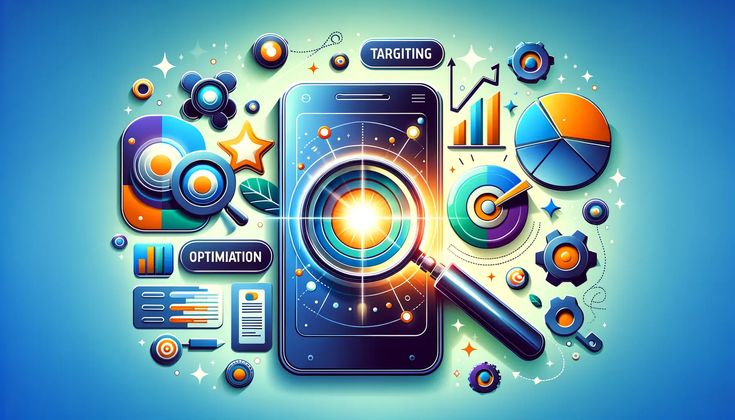The app marketing landscape is constantly evolving, with new strategies, technologies, and user behaviors shaping how developers and marketers approach app promotion. Staying ahead of the curve is essential for achieving long-term success, whether you’re aiming to boost app downloads, increase user engagement, or drive in-app purchases. This article dives into the latest app marketing trends that can help you supercharge your app’s growth in 2025.
1. App Store Optimization (ASO) Becomes More Complex
App Store Optimization (ASO) has always been crucial for app visibility, but in 2025, it’s evolving into a more sophisticated strategy. App stores like the Apple App Store and Google Play Store are constantly updating their algorithms and adding new ranking factors that affect how your app is discovered by potential users.
Latest Trends in ASO:
- Localized App Descriptions: To reach a global audience, app descriptions need to be optimized in multiple languages. Localization is no longer just about translating text—it’s about tailoring content to local preferences, cultural nuances, and even local SEO keywords.
- Conversion Rate Optimization (CRO): A key ASO factor now is improving your app’s conversion rate on the app store. This means focusing on improving your app’s title, icon, screenshots, videos, and reviews. Testing different variations and analyzing which ones drive more installs is becoming essential.
- Long-Tail Keywords: Long-tail keywords—specific and detailed search terms—are gaining traction. Using more niche keywords that cater to specific needs or features within your app helps you rank for a broader range of search queries.
ASO is no longer a one-off task but an ongoing strategy that requires constant testing, adaptation, and a deep understanding of your audience’s search behavior.
2. Influencer Marketing Dominates App Promotion
Influencer marketing is no longer a trend—it’s become a mainstay for app promotion, and in 2025, its importance is only growing. With millions of content creators and influencers across platforms like YouTube, Instagram, TikTok, and Twitch, partnering with influencers allows brands to tap into highly engaged communities.
Why Influencer Marketing is So Effective:
- Increased Trust and Engagement: Influencers have cultivated deep relationships with their audiences, making their recommendations highly trusted. When an influencer promotes your app, their followers are more likely to download and try it.
- Cost-Effectiveness for Smaller Apps: While mega-celebrities can be expensive, micro-influencers (those with smaller, niche audiences) often have a higher engagement rate and are more affordable. This is especially useful for startups and new apps.
- User-Generated Content (UGC): Influencers often generate UGC when they create content about your app, whether it’s showcasing features or documenting their experience. This form of content can be repurposed across your marketing channels, serving as powerful social proof.
Key Strategies:
- Long-Term Relationships: Building long-term relationships with influencers rather than relying on one-off posts creates sustained buzz and credibility for your app.
- Referral Programs: Combine influencer promotions with referral programs where influencers share unique promo codes or links, incentivizing users to download your app.
Influencer marketing is no longer just for B2C businesses or large corporations. Even small, niche apps can see significant success by partnering with the right influencers.
3. Personalized Marketing and Hyper-Personalization
Personalization has been around for a while, but with advances in data analytics and AI, hyper-personalization is becoming a major trend in app marketing. By utilizing user data to provide tailored experiences, developers can increase user engagement and retention rates.
Hyper-Personalization Techniques:
- In-App Messaging: Tailor messages within your app to specific user behaviors or preferences. For instance, if a user completes a task or action, provide them with personalized tips, offers, or content based on their behavior.
- Dynamic Content: Apps can serve dynamic content that adapts to a user’s location, time of day, or browsing history. For example, a fitness app might display different workout recommendations based on the user’s previous activities or goals.
- Push Notifications: Personalized push notifications, such as reminders about abandoned cart items or offering discounts on items they’ve shown interest in, have higher engagement rates compared to generic messages.
Incorporating hyper-personalization into your app marketing not only enhances user experience but also increases the likelihood of users engaging with your app more frequently.
4. AI and Machine Learning for Targeted Ads and Optimization
Artificial Intelligence (AI) and machine learning (ML) are transforming how app marketers target and optimize their ads. These technologies allow for real-time data analysis, predictive modeling, and enhanced targeting capabilities that can dramatically improve the effectiveness of your campaigns.
AI and ML in App Marketing:
- Predictive Analytics: AI-powered tools can analyze user behavior and predict future actions, such as when a user is most likely to churn or make an in-app purchase. This helps app marketers to take proactive measures, such as offering discounts or incentives to prevent churn.
- Automated Ad Targeting: AI allows for more sophisticated ad targeting, adjusting in real-time based on user behavior and interactions. Google Ads and Facebook Ads, for example, leverage AI to dynamically adjust bids, placements, and audience targeting to optimize campaigns.
- Programmatic Advertising: AI-driven programmatic ad buying uses algorithms to automatically purchase ad space based on specific targeting parameters, ensuring your ads are shown to the right people at the right time.
AI and machine learning provide app marketers with powerful tools to optimize their strategies, predict trends, and improve the ROI of their campaigns.
5. Video Marketing for Apps (Short-Form & Long-Form)
Video marketing is no longer optional for app promotion—it’s essential. With the rise of video-centric platforms like YouTube and TikTok, as well as in-app video content, video has proven to be one of the most engaging content types available.
Why Video is Crucial for App Marketing:
- Demonstrates App Functionality: App store videos are one of the most effective ways to showcase how your app works. An engaging, concise, and informative app preview video can significantly increase download rates.
- Storytelling: Storytelling via video allows you to emotionally connect with your audience. Rather than just showcasing features, you can tell the story of how your app solves a real problem or improves the user’s life.
- Short-Form Video: Platforms like TikTok and Instagram Stories have popularized short-form video content. These bite-sized videos are easy to consume and share, making them perfect for viral marketing.
Tips for Successful Video Marketing:
- Focus on the First Few Seconds: Capture attention within the first 5-10 seconds of the video. If the video doesn’t grab the viewer’s attention immediately, they will scroll past it.
- Include a Call to Action: Every video should have a clear call to action, such as “Download Now” or “Try our free trial.” This guides viewers toward the next step.
- User-Generated Content: Encourage users to share their own videos of them using your app, which can further build trust and create a sense of community.
Video marketing has an incredible potential for virality and user engagement, making it a must-have in any app marketing strategy.
6. Voice Search and App Discoverability
With the growing adoption of voice-activated devices like smart speakers and voice assistants (e.g., Siri, Alexa, Google Assistant), voice search is quickly becoming a game-changer for app discoverability. Voice search allows users to find apps hands-free, making it even more important for apps to be optimized for voice queries.
How Voice Search Impacts App Marketing:
- Optimizing for Voice: Just as you optimize your app for text-based search queries (ASO), it’s essential to optimize for voice search by targeting natural language queries, like “Best fitness app” or “App for managing my finances.”
- Smart Speaker Integration: Integrating your app with smart speakers can be a powerful way to engage users. For example, an app might offer voice commands or responses that work through Alexa or Google Home, improving user experience and discoverability.
As voice search continues to grow, optimizing your app’s presence in voice-activated platforms will be crucial for staying ahead of the competition.
7. Blockchain and Crypto Integration
While still an emerging trend, blockchain and cryptocurrency integration in apps is gaining traction. In 2025, blockchain technology offers exciting possibilities for app marketers, from enabling secure transactions to offering new ways to reward users.
Blockchain and Crypto for Apps:
- In-App Transactions: Cryptocurrency offers an alternative payment method for in-app purchases, appealing to users who prefer using digital currencies.
- NFT Integration: Some apps are experimenting with integrating NFTs (non-fungible tokens) into their offerings, allowing users to buy, sell, and trade digital assets directly within the app.
For apps operating in industries like gaming, finance, or collectibles, integrating blockchain and cryptocurrency features can unlock new revenue streams and improve user engagement.
8. Privacy-First Marketing
As privacy concerns continue to rise, privacy-first marketing is becoming a critical focus for app developers and marketers. With the introduction of laws like GDPR in Europe and CCPA in California, consumers are more conscious about how their data is being used.
Privacy-First Marketing Strategies:
- Transparency in Data Usage: Clearly communicate how user data will be used within your app. Implementing privacy policies that are easy to understand helps build trust with your audience.
- User Consent: Obtain explicit user consent for data collection, especially for personalized marketing efforts like push notifications or tracking user behavior.
- Privacy-Respecting Advertising: Use privacy-friendly ad strategies, such as contextual targeting rather than relying on third-party data.
Privacy-first marketing not only keeps you compliant with regulations but also fosters trust with your users, enhancing brand loyalty and user retention.
Conclusion
In 2025, app marketing is driven by innovation and a deep understanding of user behavior. From AI-powered targeting and personalized content to influencer partnerships and the rise of video marketing, staying on top of these trends will give your app the competitive edge it needs. By integrating these strategies into your marketing plan, you can effectively drive app downloads, enhance user engagement, and ultimately achieve your




